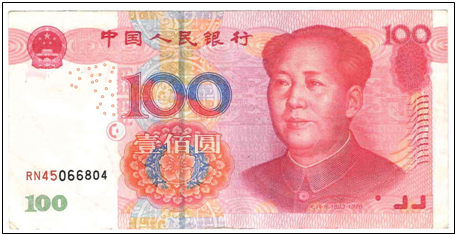Lewis Lehrman and John Mueller had a very interesting oped on exporters that use currency devaluation to boost exports, “Monetary reform or trade war,” and how Congress might deal with it in the future — without resorting to tariffs.
In it, Lehrman and Mueller call for G-20 economies including China to reach an international monetary accord on stable currency exchange rates “mutually convertible to gold at statutory fixed parities.” This, as the means of settling the current imbalances that plague the global economy — where central banks beggar thy neighbor with artificially low pegs to the U.S. dollar and/or stockpile dollar-denominated assets while selling their own currencies to weaken them.
These devaluations have the effect of making the offending countries’ exports cheaper, while making U.S. exports more expensive, garnering significant trade advantage. But, under the Lehrman-Mueller plan, that would all come to an end, as would the world’s current floating exchange rate system.
The authors tout the proposal, which excludes the use of tariffs out of hand, as “the least imperfect solution to avoid currency and trade wars.”
It sounds nice, and theoretically, a trade war would certainly be avoided if the world would just agree on stable exchange rates. But that might not happen immediately. That is, not all countries would opt into the new system right away.
So, as a fallback, Lehrman and Mueller call for the G-7 — the U.S., Canada, France, Germany, Italy, Japan, and the United Kingdom — to implement the new standard.
Okay, so far, so good, but then what? What about the rest of the world?
Lehrman and Mueller offer, charitably, that in the stable exchange rate G-7 arrangement, China and other “emerging countries will conform.”
They will? Why?
Instead, it appears more likely China and other non-G-7 economies would simply just keep right on devaluing their currencies against the new, stable exchange rates to continue gaining a trade advantage against the G-7. Those trade imbalances would then be poured into stockpiling treasuries, corporate bonds and equities to devalue their own currencies even further.
In which case, we’d be right back in the thick of the currency and trade wars, only at an even greater disadvantage. Then what?
Interestingly, in Lehrman’s book published in 2011, “The True Gold Standard,” he outlined exactly how he thought the U.S. should proceed if widespread agreement on stable exchange rates — rooted in a new international gold standard — could not be achieved at first, and the U.S. had to proceed along a more unilateral path in implementing the new system.
As Lehrman wrote: “Any foreign nation which is not a signatory to the proposed United States Monetary Reform Plan, when effective, should be subject to all sovereign United States policies needed to prevent unfair exchange rate or trade manipulations by foreign governments of the new, convertible dollar-gold parity. Manipulations deemed inequitable for the American workforce, its businesses, and government should be monitored by the authorities and regulated by countervailing United States policies.” Meaning, tariffs, among other instruments.
But in the Wall Street Journal piece, Lehrman and Mueller said no to tariffs, stating, “Floating currencies can be depreciated faster and further than import taxes can be adjusted.”
Barring some sort of automatic adjustment mechanism, perhaps that is so. But, lacking an enforcement tool against continued currency manipulation that might induce unwilling nations to join the new stable exchange rate regime, it would appear that those adopting the new standard would actually be setting their own currencies at expensive pegs relative to other economies — leaving them at a relative disadvantage to non-participating nations.
Meaning, there might be little incentive to actually join.
When Lehrman wrote his book, he anticipated the scenario where widespread agreement would not be reached on stable exchange rates at first, and that countervailing policies would be necessary in the interim to induce other nations to join. But if tariffs are off the table, then it would appear the only alternative would require truly masterful diplomacy.
Which is still worth a try, we suppose. Reaching international agreement ending competitive currency devaluations globally would certainly be a positive development, boosting economic growth and helping to create jobs here. By all means, end the trade wars.
But proceeding with such a system unilaterally or with just a few nations without a backup plan would be ill-advised, because China might not cooperate out of the goodness of its heart. For such a plan to work, there would still appear to be a need for both an incentive to join and a disincentive against not.
Robert Romano is the senior editor of Americans for Limited Government.







